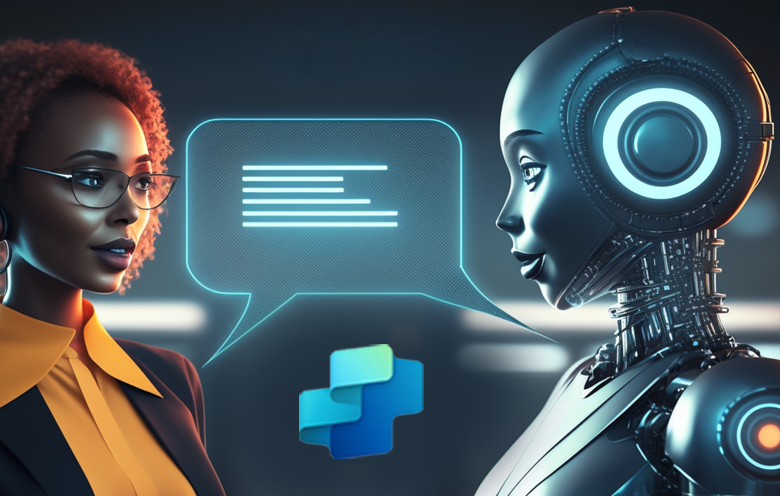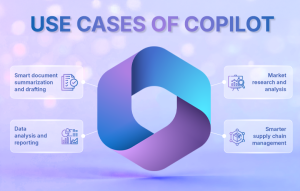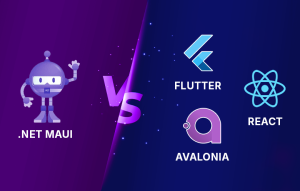Businesses are now leveraging artificial intelligence (AI) to improve customer experience (CX) in new ways for engagement and personalized services. With the integration of machine learning, behavioral data analytics, chatbots, and predictive algorithms, companies can better meet the expectations of customers and go beyond by providing meaningful interactions to their audience in real-time.
This approach moves beyond mere automation, creating an interactive, personalized CX that makes customers feel valued and understood.
A key advantage of AI in customer experience lies in its capacity to analyze unstructured data, interpret customer feedback, and craft tailored interactions that optimize satisfaction. Solutions like behavioral data platforms and AI assistants are now essential, providing businesses with real-time insights that allow for seamless, individualized customer interactions.
76% of ecommerce teams with AI credit it with revenue growth. – Salesforce
Why is AI in customer experience essential?
Delivering exceptional CX has become the foundation of business success, distinguishing brands in a saturated market and building long-term loyalty. But why is CX so crucial? It has a direct impact on customer decisions and behaviors. Many CX leaders view AI as an essential technology for enhancing interactions and securing a competitive edge. With AI’s growing role, organizations can now create experiences that resonate deeply with their customer base.
The advent of generative AI has empowered businesses to drive personalization to new heights. By leveraging this technology, organizations can:
- Improve product usability
- Streamline the customer journey
- Increase cost efficiencies
- Strengthen customer loyalty
Suggested: Agentic AI: Redefining the future artificial intelligence
Key benefits of AI in customer service
1. 24/7 customer support
AI-driven support systems can operate around the clock, free from the limitations of human work schedules. This constant availability is invaluable for customers in different time zones or those needing help outside standard hours. AI-powered solutions enable businesses to handle a high volume of inquiries without compromising on service quality.
2. Optimized support costs
AI in customer support reduces the need for large customer service teams by managing repetitive and frequent inquiries, directing customers through websites or apps, and updating customer records. This minimizes operational costs and human error, while increasing service standards.
3. Increased agent productivity
With the diverse nature of customer inquiries, it’s easy for service agents to feel overwhelmed. AI serves as an ideal co-pilot, simplifying their tasks by, summarizing conversations and emails, rephrasing responses to align with brand tone, managing tickets and grouping them to identify duplication and suggesting next-best actions for agents.
4. Reduced agent exhaustion
AI in customer support handles repetitive tasks and decreases the workload on customer service teams, reducing stress and preventing burnout. This support contributes to a more motivated and engaged team capable of delivering better customer service.
5. Data-driven decision making
AI tools generate comprehensive reports that reveal insights into customer behavior and support performance. These analytics enable businesses to make informed decisions, identify trends, and continuously refine their customer service strategies.
6. Proactive customer service
AI’s capacity to anticipate needs allows it to suggest products or services based on individual customer histories and preferences. This proactive support model – backed by predictive analytics, data insights, and knowledge graphs helps businesses address potential issues before they arise, creating smoother customer experiences and boosting sales.
83% of sales teams with AI saw revenue growth in the past year – versus 66% of teams without AI. -Salesforce
Practical applications of AI in customer service
1. AI agents
AI agents are pre-trained in real customer interactions. This enables them to handle complex inquiries with precision. These agents use conversational AI to address sophisticated requests from start to finish, allowing human agents to focus on higher-value tasks.
2. Workflow automation
AI optimizes support workflows through intelligent routing, contextual ticket analysis, and automated responses, enabling agents to provide faster support. For example, AI can send inquiries to the right agent based on language and sentiment. AI virtual assistant can summarize ticket details to save agent’s time.
3. Chatbots
AI-based chatbots provide immediate responses to basic inquiries, help with order tracking, offer product suggestions, and troubleshoot common issues – all accessible 24/7.
4. Natural language processing (NLP)
NLP enables AI to understand human language, analyze customer sentiment, and offer tailored responses. By supporting unstructured search and conversational queries, NLP enhances chatbot efficiency and provides more personalized CX.
5. Sentiment analysis
AI-powered sentiment analytics tools analyze customer feedback, reviews and social media interactions to gauge the satisfaction of the customer to improve CX proactively.
6. Recommendation systems
AI-powered recommendation engines scan customer behavior and make product and service suggestions based on an individual’s preference. This increases cross-selling and upselling opportunities.
7. Predictive analytics
AI-based predictive analytics anticipates the needs of customers and thus gives corporations the ability to resolve problems proactively, as well as personalize interactions based on predicted behaviors.
8. Self-service solutions
AI-powered self-service tools, such as knowledge bases and FAQs, use NLP to provide relevant responses, enabling customers to resolve issues independently.
9. Intelligent routing
AI-powered routing systems analyze inquiries and direct them to the most qualified agents, ensuring efficient, accurate responses.
92% of service teams with AI say it reduces their costs.- Salesforce
Factors to consider when implementing AI in customer service
- Workforce impact – Emphasize that AI will support and not replace employees, underscoring the ongoing value of human skills in customer experience.
- Trust and reliability – Use accurate, up-to-date CRM data to ensure AI systems remain trustworthy and secure.
- Investment and implementation – Consider pre-built AI customer service platforms to avoid significant infrastructure and training costs
Microsoft Copilot Studio: Empowering customer service with custom AI solutions
Microsoft Copilot Studio provides businesses with tools to create customized AI experiences in customer service. It enables tailored workflows that enhance productivity and personalize interactions, with features like automated data retrieval, task routing, and context-aware responses within Microsoft’s ecosystem. By leveraging existing data, teams can design AI actions that seamlessly guide assistants through tasks such as support ticket resolution, feedback processing, and CRM updates. With predictive modeling and intelligent decision-making based on real-time data, Copilot Studio empowers service agents to deliver efficient, personalized interactions informed by customer history and behavior.
Microsoft Copilot Studio: Build customized AI assistants
Discover Microsoft Copilot Studio: A powerful AI platform to automate tasks, enhance productivity, and streamline operations with custom AI assistants and seamless integrations.

This powerful tool not only simplifies the deployment of AI solutions but also empowers customer service teams to adapt quickly to evolving customer expectations. By incorporating Microsoft Copilot Studio into your AI strategy, you can enhance overall customer experience, ensure service reliability, and reduce response times.
Getting started with AI powered customer service
AI implementation in customer service is more accessible than ever. Start by exploring how generative AI can transform CX through personalization and agent support. Begin with manageable applications, such as AI assistants that pull data from your CRM to answer common queries and update records. Over time, you can build and deploy custom AI functions that align with your organization’s unique needs.
By strategically integrating AI, you can enhance CX, strengthen customer relationships, and secure a competitive advantage in an increasingly customer-centric market. To learn more about how AI-powered customer service can transform your business, connect with our experts today.









